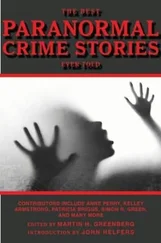“My!” said Mrs. Peters, dropping the things on the table and hurrying to the stove.
Mrs. Hale stood examining the clothes the woman who was being detained in town had said she wanted.
“Wright was close!” she exclaimed, holding up a shabby black skirt that bore the marks of much making over. “I think maybe that’s why she kept so much to herself. I s’pose she felt she couldn’t do her part; and then, you don’t enjoy things when you feel shabby.
She used to wear pretty clothes and be lively — when she was Minnie Foster, one of the town girls, singing in the choir. But that — oh, that was twenty years ago.”
With a carefulness in which there was something tender, she folded the shabby clothes and piled them at one corner of the table.
She looked at Mrs. Peters, and there was something in the other woman’s look that irritated her.
“She don’t care,” she said to herself. “Much difference it makes to her whether Minnie Foster had pretty clothes when she was a girl.”
Then she looked again, and she wasn’t so sure; in fact, she hadn’t at any time been perfectly sure about Mrs. Peters. She had that shrinking manner, and yet her eyes looked as if they could see a long way into things.
“This all you was to take in?” asked Mrs. Hale.
“No,” said the sheriff’s wife; “she said she wanted an apron. Funny thing to want,” she ventured in her nervous little way, “for there’s not much to get you dirty in jail, goodness knows. But I suppose just to make her feel more natural. If you’re used to wearing an apron…She said they were in the bottom drawer of this cupboard.
Yes — here they are. And then her little shawl that always hung on the stair door.”
She took the small gray shawl from behind the door leading upstairs, and stood a minute looking at it.
Suddenly Mrs. Hale took a quick step toward the other woman.
“Mrs. Peters!”
“Yes, Mrs. Hale?”
“Do you think she — did it?”
A frightened look blurred the other things in Mrs. Peters’s eyes.
“Oh, I don’t know,” she said, in a voice that seemed to shrink away from the subject.
“Well, I don’t think she did,” affirmed Mrs. Hale stoutly. “Asking for an apron, and her little shawl. Worryin’ about her fruit.”
“Mr. Peters says—” Footsteps were heard in the room above; she stopped, looked up, then went on in a lowered voice: “Mr. Peters says — it looks bad for her. Mr. Henderson is awful sarcastic in a speech, and he’s going to make fun of her saying she didn’t — wake up.”
For a moment Mrs. Hale had no answer. Then, “Well, I guess John Wright didn’t wake up — when they was slippin’ that rope under his neck,” she muttered.
“No, it’s strange ,” breathed Mrs. Peters. “They think it was such a — funny way to kill a man.”
She began to laugh; at the sound of the laugh, abruptly stopped.
“That’s just what Mr. Hale said,” said Mrs. Hale, in a resolutely natural voice. “There was a gun in the house. He says that’s what he can’t understand.”
“Mr. Henderson said, coming out, that what was needed for the case was a motive. Something to show anger — or sudden feeling.”
“Well, I don’t see any signs of anger around here,” said Mrs. Hale.
“I don’t—”
She stopped. It was as if her mind tripped on something. Her eye was caught by a dish-towel in the middle of the kitchen table. Slowly she moved toward the table. One half of it was wiped clean, the other half messy. Her eyes made a slow, almost unwilling turn to the bucket of sugar and the half empty bag beside it. Things begun — and not finished.
After a moment she stepped back, and said, in that manner of releasing herself:
“Wonder how they’re finding things upstairs? I hope she had it a little more red up up there. You know”—she paused, and feeling gathered—“it seems kind of sneaking ; locking her up in town and coming out here to get her own house to turn against her!”
“But, Mrs. Hale,” said the sheriff’s wife, “the law is the law.”
“I s’pose ’tis,” answered Mrs. Hale shortly.
She turned to the stove, saying something about that fire not being much to brag of. She worked with it a minute, and when she straightened up she said aggressively:
“The law is the law — and a bad stove is a bad stove. How’d you like to cook on this?”—pointing with the poker to the broken lining.
She opened the oven door and started to express her opinion of the oven; but she was swept into her own thoughts, thinking of what it would mean, year after year, to have that stove to wrestle with. The thought of Minnie Foster trying to bake in that oven — and the thought of her never going over to see Minnie Foster—
She was startled by hearing Mrs. Peters say: “A person gets discouraged — and loses heart.”
The sheriff’s wife had looked from the stove to the sink — to the pail of water which had been carried in from outside. The two women stood there silent, above them the footsteps of the men who were looking for evidence against the woman who had worked in that kitchen. That look of seeing into things, of seeing through a thing to something else, was in the eyes of the sheriff’s wife now.
When Mrs. Hale next spoke to her, it was gently:
“Better loosen up your things, Mrs. Peters. We’ll not feel them when we go out.”
Mrs. Peters went to the back of the room to hang up the fur tippet she was wearing. A moment later she exclaimed, “Why, she was piecing a quilt,” and held up a large sewing basket piled high with quilt pieces.
Mrs. Hale spread some of the blocks on the table.
“It’s log-cabin pattern,” she said, putting several of them together.
“Pretty, isn’t it?”
They were so engaged with the quilt that they did not hear the footsteps on the stairs. Just as the stair door opened Mrs. Hale was saying:
“Do you suppose she was going to quilt it or just knot it?”
The sheriff threw up his hands.
“They wonder whether she was going to quilt it or just knot it!”
There was a laugh for the ways of women, a warming of hands over the stove, and then the county attorney said briskly:
“Well, let’s go right out to the barn and get that cleared up.”
“I don’t see as there’s anything so strange,” Mrs. Hale said resentfully, after the outside door had closed on the three men— “our taking up our time with little things while we’re waiting for them to get the evidence. I don’t see as it’s anything to laugh about.”
“Of course they’ve got awful important things on their minds,”
said the sheriff’s wife apologetically.
They returned to an inspection of the blocks for the quilt. Mrs.
Hale was looking at the fine, even sewing, and preoccupied with thoughts of the woman who had done that sewing, when she heard the sheriff’s wife say, in a queer tone:
“Why, look at this one.”
She turned to take the block held out to her.
“The sewing,” said Mrs. Peters, in a troubled way. “All the rest of them have been so nice and even — but — this one. Why, it looks as if she didn’t know what she was about!”
Their eyes met — something flashed to life, passed between them; then, as if with an effort, they seemed to pull away from each other.
A moment Mrs. Hale sat there, her hands folded over that sewing which was so unlike all the rest of the sewing. Then she had pulled a knot and drawn the threads.
“Oh, what are you doing, Mrs. Hale?” asked the sheriff’s wife, startled.
“Just pulling out a stitch or two that’s not sewed very good,” said Mrs. Hale mildly.
“I don’t think we ought to touch things,” Mrs. Peters said, a little helplessly.
Читать дальше












